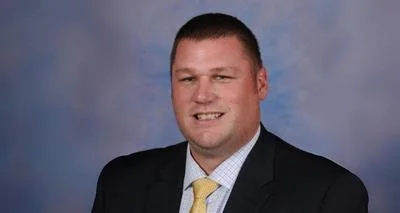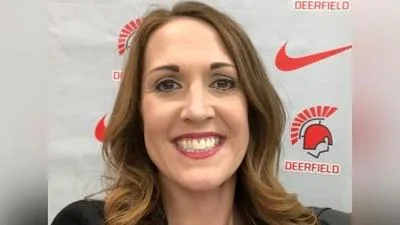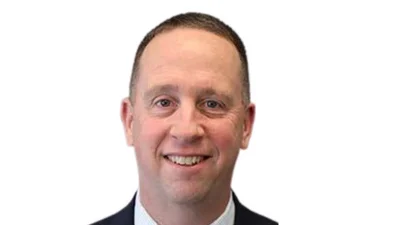Village of Deerfield Committee of the Whole met May 22.
Here are the minutes provided by the committee:
The Village Board met as a Committee of the Whole in the Council Chambers of the Village Hall at 3 p.m. on Monday, May 22, 2023. In attendance were:
PRESENT:
Village Board Staff
Dan Shapiro, Mayor
Bob Benton, Trustee
Larry Berg, Trustee
Elaine Jacoby, Trustee
Rebekah Metts-Childers, Trustee
Mary Oppenheim, Trustee
Bill Seiden, Trustee
Staff
Kent Street, Village Manager
Andrew Lichterman, Assistant Village Manager/Director Community Development
Brian Budny, Deputy Chief of Police
Eric Burk, Finance Director
David Fitzgerald-Sullivan, Comm. Coord.
Desiree Van Thorre, Admin Services Coord.
Robert Phillips, Dir. of PW and Eng.
Tyler Dickinson, Asst. Dir. of PW and Eng.
Jessica Sciaretta, Admin. Intern
Public Comment
There were no public comments on non-agenda items.
Business
1. Discussion of Food Truck Regulations
Andrew Lichterman, Assistant Village Manager/Director Community Development, delivered the staff report. He included an e-mail of comments and feedback from local businesses compiled by the DBR Chamber of Commerce.
The recommendations include annual licensing of food trucks for a $100 fee and limits on operating hours, frequency and operating in the public way. Food trucks would be required to pay sales taxes at the same rate as brick and mortar restaurants. There is a requirement for access to recycling, not just garbage, and fines for breaking regulations.
He noted that mass food delivery can be further explored for a prohibition. It is possible to regulate. Enforcement would be done by staff with citations from the Police Department or Code Enforcement. He noted that staff sought additional comment from the business community through the DBR Chamber.
Mayor Shapiro noted we had a successful food truck event last Wednesday, and that the program is off to a great start. He thanked Justin Keenan for his work organizing the events.
DBR Chamber of Commerce Executive Director Victoria Street reported she reached out by e mail and telephone to all restaurants and hotels in the Village. Most were excited to hear the Board are discussing the topic. She noted most restaurants do not have a food truck or the necessary staff to participate in the Food Truck Wednesday series.
She said restaurants want a level playing field with food trucks. She noted that food truck licensing fees are waived for food trucks at a Village event and that the restaurants she spoke with objected to that. The restaurants would also like a fee waiver.
She noted that restaurants want food trucks to pay the same food and beverage taxes as they do. Restaurants also do not like mass food pick up in residential areas, as it takes away from their business. They don’t mind traditional deliveries.
Trustee Oppenheim reported that Dwell Social brings a restaurant from Chicago to deliver food in Deerfield each week. Mayor Shapiro inquired about the regulations requiring collection of sales taxes and the impetus behind the fee waiver for food trucks at the event.
Mr. Lichterman reported that it was very hard to attract food trucks last year. They are charged to come on Wednesday events and do not require the annual permit fee for participation in a Village event. Trustee Metts-Childers inquired if they must participate each week to get the fee waiver.
Trustee Jacoby inquired about the restaurant business license fees. Ms. Street noted that restaurants pay an annual license fee that food trucks do not.
Trustee Oppenheim stated that it makes sense that restaurants say they want equity. She appreciates how hard it can be to get food trucks to come to the Village, but there needs to be a way to make it fair.
Mr. Lichterman noted staff can bring something back to the Board for consideration that is equitable. Mayor Shapiro stated the policy should be fair to all.
Trustee Jacoby suggested lowering the fee to $25. Mayor Shapiro suggested getting rid of the fee waiver for the food truck events. Trustee Oppenheim noted that one issue was food trucks coming to town and going to a school or a street. She stated our goal is not to have food trucks everywhere.
Trustee Metts-Childers inquired if a food truck is participating in just one Food Truck Wednesday would they need an annual license from the Village for another private event in the Village. Mr. Lichterman stated they would need an annual license for operating outside of a Village sponsored event.
Trustee Seiden asked if the restaurants are saying it is not equitable because they feel they are losing business to the Food Truck Wednesday events. Ms. Street stated that some lose money and others gain business when the food trucks run out of food.
Mayor Shapiro liked the hypothetical situation Trustee Metts-Childers brought up regarding non Village sponsored events. Trustee Oppenheim asked how to ensure the Village is receiving sales taxes from food trucks. Mr. Lichterman stated the benefit of the annual food truck license is that staff can check their food service permits and review their receipts. Mr. Street noted it is similar to the Farmers Market, as they are required to do the same.
Trustee Oppenheim thinks the licensing concept provides the equity that the restaurants are looking for.
Trustee Metts-Childers questioned whether to regulate mass food deliveries. She noted the frequency of these deliveries has dropped considerably and enforcing it will take a lot of energy.
Allan Shulman owns Dwell Social and lives in Northbrook. He started the company during the pandemic when in-person dining was closed. He works with iconic restaurants in Chicago and places that serve cuisines that cannot be found in the suburbs. He stated the concept works well with economies of scale.
He reported deliveries used to be conducted in the driveway of a friend of his who lives in Deerfield. Now, all deliveries are made to a customer’s home, except for one pickup occurring about once per month. Instead of 20 drivers delivering to 20 homes, they have one driver which makes it a greener way to deliver food.
Mr. Shulman reported Dwell Social has 50,000 people on its e-mail list. They order ahead of time and food is delivered to the home. They only do pickup if it’s Peaquod’s.
2. Discussion of Lead Service Replacement Program
Mr. Phillips reported that in August 2021 the Governor signed into law Public Act 102-0613, also known as the Lead Service Line (LSL) Replacement and Notification Act. As the name implies, this Act’s main focus is to require municipalities to develop and implement a lead service line replacement plan which includes both the public and private sections of water service. This Act, in its current form, does not require the community water suppliers to be responsible for the cost of the replacement. In order for the Village to begin to draw down the total amount of lead service lines in the Village and to incentivize residential lead service line replacements, staff is requesting the Village Board consider a voluntary replacement cost sharing program.
Mr. Dickinson reported the purpose of this Voluntary Lead Service Line Replacement Cost Sharing Program is to assist homeowners in replacing their lead service line in its entirety, from watermain to the house, with a new copper or approved equal water service line. He noted the Village has ample lead time to accomplish this goal.
Mayor Shapiro noted that Public Works does a good job of long-term planning and alerting the Mayor and Board to future expenses.
Mr. Dickinson noted that all neighboring communities are developing plans, but no two plans are the same. The Village is proposing a 50/50 cost split per service. Reimbursements will be awarded in an amount equal to the lesser of 50% of the improvement costs, or $6,000 for all LSLs or galvanized service line replacements. Furthermore, in situations where the public side of the service is compliant but the private side is not and requires replacement, the program reimbursements will be awarded in an amount equal to the lesser of 50% of the improvement costs or $2,500 per location. All other costs, including restoration for work inside/outside the structure, permit costs, and other related costs, are to be paid by the homeowner.
Mayor Shapiro asked what would happen if a homeowner refuses to participate. Mr. Dickinson noted they would be required to sign a legal waiver.
Trustee Metts-Childers inquired about waiving some building and inspection fees. Mr. Lichterman noted it is possible to waive certain fees, but not everything to cover the cost. Mayor Shapiro suggested handling it like the Building Façade Program with an annual dollar threshold and base it on the size of the capital plan. Staff could come ask for more funding later in the budget year, if needed.
Mr. Dickinson said staff will come back to the Board with a final recommendation.
3. Discussion of Solar Rebate Program
Mr. Lichterman reported that the Village Board previously requested that staff prepare a recommendation regarding a possible solar installation rebate program. If the Village desires to offer a solar rebate, staff recommends that the Village Board consider offering a waiver of the base permit fee, possibly up to a maximum amount. If the Village Board wants to consider additional fee waivers beyond the base permit fee, staff recommends the infrastructure impact fee be rebated.
He noted it is not recommended that direct costs for plan review and inspection services be considered for rebate. Over the last two years, the Village averaged 18 solar permit applications annually. Based on a weighted average of the base permit fee and infrastructure impact fee: if the base permit fees were to be waived it is estimated to cost the Village approximately $8,795 annually; if the infrastructure impact fee were to be waived it is estimated to cost the Village approximately $2,529 annually; and if both the base permit fee and infrastructure impact fee were waived it is estimated to cost the Village approximately $11,325 dollars annually.
He stated the estimates above assume a consistent trend of 18 solar permits annually. If the number of solar permits increases then the estimates would need to be further adjusted.
Mayor Shapiro noted waiving fees is one way to incentivize sustainability. Trustee Oppenheim suggested rebating the whole base fee. Trustee Jacoby noted she rents her solar panels and the company she hired paid for everything, so she wouldn’t know about this rebate as a consumer. Mr. Street asked about retroactive consideration. It was decided to move forward with a 50% reduction and no retroactive consideration.
4. Discussion on Alley Vacations
Mr. Phillips reported the Village owns 24 alleys covering over 150,000 square feet within the corporate limits, and some are considered improved alleys while others are considered unimproved alleys. Unimproved refers to alleys that are not paved in any fashion, are typically blocked off or have no formal access point, and are considered for all intents and purposes as an extension of a real property.
He noted that Village staff presented a recommendation to the Village Board in 2014 regarding a proposal to relinquish ownership and vacate all unimproved alleys within the Village. Ownership of the land would become that of the adjacent property owner, and all costs associated with engineering, platting, and acquisition would be borne by the Village. At the time, the estimate to perform the work was approximately $50,000 per alley, a cost which has likely increased 2-3 fold since the original proposal.
Mr. Phillips stated the 2014 proposal was denied by the Village Board, but an alternative to relinquish ownership of unimproved alleys was discussed. The alternative, though never procedurally adopted, would later be executed by staff on several occasions where it was advantageous for the Village to relinquish ownership.
He noted the Village of Deerfield has relinquished ownership of several unimproved alley parcels since the last COW discussion in 2014. However, a formal policy has never been established to outline steps required for unimproved alley vacations. The current practice is designed to minimize cost to the Village and create a seamless transition of property to the home owners. There is no current or proposed benefit to the Village for retaining ownership of the unimproved alleys.
Mr. Phillips stated if the Village Board is behind the current practice, he would like to formalize the process. Mayor Shapiro noted there is some wisdom to putting this in the municipal code. Trustee Berg asked about land-locking situations. Mayor Shapiro noted it would have to be reviewed on a case-by-case basis.
5. Development Updates
Mr. Lichterman provided updates on the downtown and proposed Lake Cook Road TIF districts and other projects.
Public Comment
There were no public comments on non-agenda items.
Adjournment:
There being no further business or discussion, Trustee Jacoby moved to adjourn the meeting. Trustee Metts-Childers seconded the motion. The motion passed by unanimous voice vote.
The meeting was adjourned at 4:45 p.m.
https://www.deerfield.il.us/AgendaCenter/ViewFile/Minutes/_05222023-994





 Alerts Sign-up
Alerts Sign-up